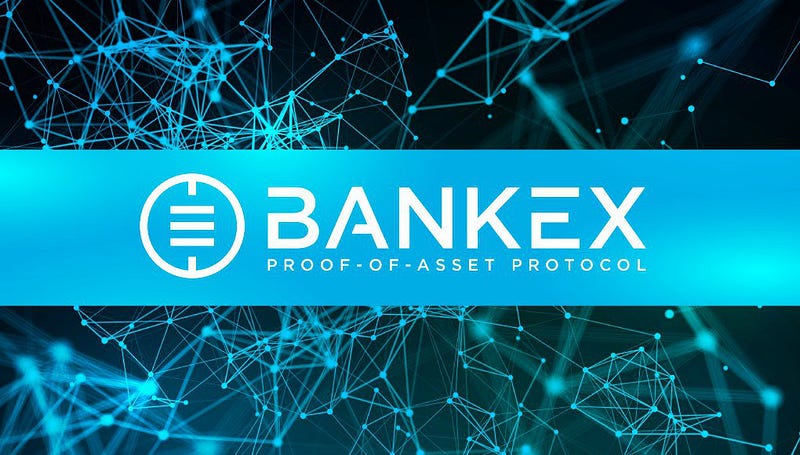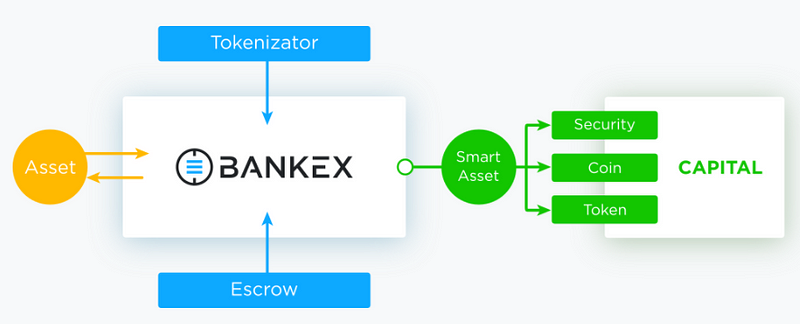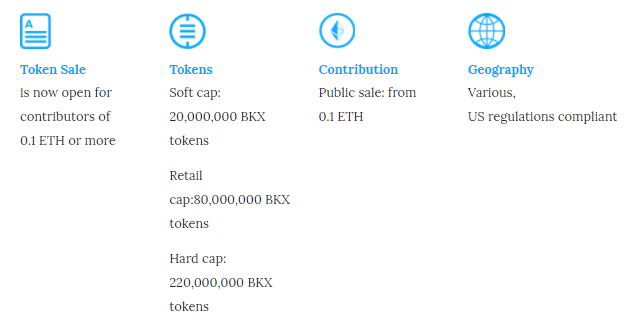
What is BANKEX ???
BANKEX Proof-of-Asset protocol (PoA) is a standard that enables new generation of assets and contracts called Decentralized capital markets. We are building Internet of Assets (IoA) on the principles of Bank-asa-Service (BaaS), powered by Internet of Things (IoT) and Artificial Intelligence (AI) technologies. PoA protocol is open for 3rd party fintech providers, AI and IOT labs, traditional financial institutions and asset owners.
Vision
BANKEX Proof-of-Asset protocol (PoA) is a standard that enables a new generation of assets and contracts creating Decentralized capital markets.

BANKEX Foundation
BANKEX Foundation is a non-commercial selfregulated organization with a community the members of which are engaged in work and development of smart contracts for new Smart Assets and Product Instances created with its participation. It includes blockchain technology experts, programmers as well as product providers and product experts.
See Proof-of-Asset Protocol in action for real world assets :
Technology
- IoT
- Blockchain
- Bank-As-S-Service
- Smart asset
Asset
- Real Estate
- Finance
- Retail
- Non Profit
Capital
- Tokens
- BKX Tokens
- Coins
- Crypto-FiatCustodian
Team
- Advisors
- Core
- Product
- Technical
How to contribute
You can contribute to the BKX token sale using MyEtherWallet or MetaMask. To join the BANKEX Token Sale, you can purchase BKX tokens directly from the Token Sale smart contract. Check out this guide to learn how to purchase using MyEtherWallet and MetaMask.
Important notes
- Do not send ETH directly to the BKX token sale contract address. Please follow instruction below on how to properly execute the purchase Tokens() smart contract function in order to purchase BKX tokens.
- DO NOT send funds from exchanges such as Poloniex, Bitfinex, Bittrex, Coinbase, GDAX, etc. Your BKX may be lost if you do.
- Do not send ether before the specified start block number, which will be announced and published on this page closer to the public sale date.
Terminology
Blockchain — a cryptographically secured data base containing the history of all transactions performed on the platform. It works the following way:
- Transaction info is sent into the blockchain network
- This transaction together with other transactions forms a block. Every block has its number and holds encrypted information about preceding blocks.
- The block is sent in to be checked by all members of the network
- If there are no discrepancies, every member adds the new block to the chain of previous blocks and the transaction is executed.
Node — a blockchain network participant storing information on past transactions (blockchain), checks information on new transactions for authenticity and is able to add in new transactions (adding blocks). All the nodes are connected to one another forming a single network.
A public blockchain is a decentralized system where the information on transactions is stored and checked in many multiple locations. This kind of synchronization between millions of locations consumes large amounts of electric energy and is significantly more expensive than a private blockchain. The system also becomes slower. However, a public blockchain may prove preferable for industries where decentralization is necessary.
A private blockchain is centralized, making it similar to traditional centralized systems, however it exceeds them in terms of efficiency and security.
ICO (Initial Coin Offering) — a method of invitation to finance a campaign/project. Tokens/coins are issued that grant the right to receive a share/service/good now or in the future, or else they grant a percentage of future profits. After the start of sales, tokens can be resold to other investors. Trade is conducted on a blockchain.
Cryptocurrency — digital money without a physical analogue. It is supported by the complexity of its development — mining. Today we are able to identify “classics” such as Bitcoin or Litecoin, and newer currencies such as Ether, which act as platforms for the creation of new assets — tokens.
Ethereum — the most popular platform for issuing of tokens and smart contracts.
Gas — a unit used to measure the price of calculations done on Ethereum. More difficult calculations are rewarded with higher amounts of Gas. This works the following way: the originator of a smart contract sets a price in gas. Miners, whose PCs handle the calculations, make the choice whether or not to perform these calculations. If the price offered is too low, then neither the calculations, nor, as a result, the contract will ever be concluded.
Smart-contract a set of pre-programmed tasks that the program automatically carries out upon certain conditions being fulfilled, then forms a deal. That’s why it requires no trust between sides, nor a middleman: the contract has a strict logical structure and the computer executes it automatically. Smart-contracts allow for inclusion of a large number of conditions and states and for a correlation between their every possible combination and various outcomes.
Ditigal tokens — croptygraphic assets issued using specialized blockchain platforms. An analogue would be a record in a register. A token has an address and may also contain a smart-contract that defines its function and also acts as a separate execution mechanism.
Tokenization — the process of transforming rights into a digital token, which is then traded on a blockchain with low transactional costs. Tokenization is an analogue of securitization on a blockchain. Smart Asset — an asset that has gone through tokenization using the BANKEX Proof-of-Asset Protocol.
ISAO (Initial Smart Asset Offering) — a method of fixing businesses (farms, stores, manufacturing plants) using tokenization of their assets based on the BANKEX PoA protocol. 35
Product instance — an iteration of a fintech-product owned by a BANKEX product provider. For instance a product provider can customize his product for various regions, thus creating a product instance for each country.
Blockchain-agnostic protocol — an application level protocol that does not depend on the exact blockchaintechnology utilized and can be implemented on any existing open source blockchain.
Token Sale Information
The purpose of the Registration is to give BANKEX supporters and followers a secure access to the public sale and to ensure everyone gets a fair chance to participate.

TOKEN ALLOCATION

PARTNERS

BANKEX Team


BANKEX Business and Product Development Team


BANKEX Tech Team



BANKEX Advisors

Details Information :
Website :https://bankex.com/en/
ANN Thread :https://bitcointalk.org/index.php?topic=2013627.0
Whitepapper :https://bankex.github.io/whitepaper/bankex-whitepaper.pdf
Telegram :https://t.me/bankex
Facebook :https://web.facebook.com/BankExchange/?_rdc=1&_rdr
Twitter :https://twitter.com/BankExProtocol
Profile Bitcointalk :https://bitcointalk.org/index.php?action=profile;u=1109350




Tidak ada komentar:
Posting Komentar